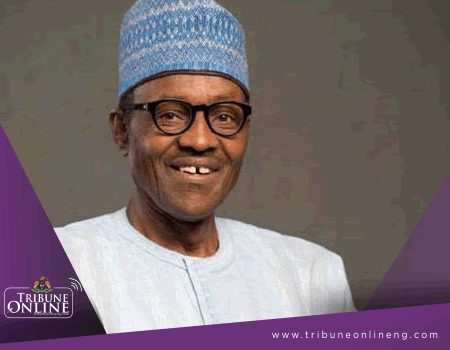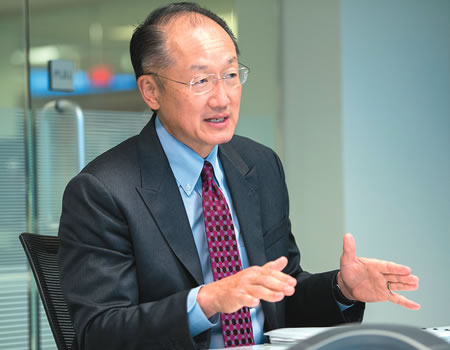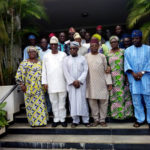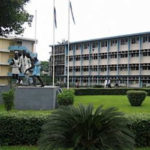World Bank President, Jim Yong Kim, had on Thursday while addressing journalists in Washington DC, said the bank had concentrated its interventions in the country on the North in consonance with the request of President Buhari.
Kim was reported to have said, “In my very first meeting with President Buhari he said specifically that he would like us to shift our focus to the northern region of Nigeria and we’ve done that. Now, it has been very difficult. The work there has been very difficult.”
The statement, not unexpectedly generated agitation among some people who felt the President was unjustly tilting development to the North.
The presidency, in a series of tweets on Presidency Nigeria, its official Twitter handle, presidency provided insights into why President Buhari sought the assistance of the World Bank for the Northeast.
According to the tweets, the current government “inherited a Northeast beset by a humanitarian crisis of monumental proportions: villages and towns laid waste; more than 20,000 dead.”
It added that “Northeast Nigeria has always been a priority for President Buhari, right from when he campaigned to be President.
“From the start of the administration, President Buhari has consistently highlighted the need for international support to secure and rebuild the N/East.
“The Northeast has featured prominently in all of the President’s engagements with the international community.
“It featured in his first meeting with the World Bank, in July 2015, at which the bank pledged financial support.”
The presidency added that “We remain grateful for the show of support from the international community, regarding the security and humanitarian situation in the N/East.”
But the presidency was not done yet as the Special Adviser (Media and Publicity) to the President, Mr Femi Adesina, issued a statement explaining what the intention of the President with regard to sourcing international assistance for the Northeast is.
The statement, which alleged deliberate twisting of the President’s action, read in part “The truth of the matter is that President Buhari, right from his first week in office in June 2015, had reached out to the G-7 in Germany that Nigeria needed help to rebuild the Northeast, which had been terribly devastated by insurgency. He said the country would prefer help in terms of rebuilding of infrastructure, rather than cash donation, which may end up being misappropriated.”
The statement said further, “Also, during a trip to Washington in 2015, and many other engagements that followed, President Buhari sought the help of the World Bank in rebuilding the beleaguered Northeast, which was then being wrested from the stranglehold of a pernicious insurgency. It was something always done in the open, and which reflected the President’s concern for the region.”
Adesina explained that since 2009, when the Boko Haram insurgency started, schools, hospitals, homes, entire villages, towns, cities, bridges, and other public utilities had been blown up, laid waste, and lives terminated in excess of 20,000, while widows and orphans littered the landscape.
He added that the President sought help from the international community after breaking the back of insurgency in the region.
The media aide said that “President Buhari has a pan-Nigerian mandate, and he will discharge his duties and responsibilities in like manner. Any part of the country that requires special attention would receive it, irrespective of primordial affinities.”
However, in a statement issued by the World Bank on Tuesday, July 21, 2015 after a meeting between the World Bank President, Kim, and President Buhari at Blair House in Washington, the bank indicated that “Nigeria has up to USD $2.1 billion of uncommitted resources from the International Development Association (IDA) as well as other support from IBRD, for addressing the development challenges of Nigeria, including in the North East and the North, in particular.”
The statement quoted Indira Konjhodzic, who was then Acting World Bank Group Country Director for Nigeria, as saying that “We are going to work closely with the Government of Nigeria to determine the best way to support their priorities in the context of our Country Development Framework and our commitment to ensure the continued growth and development momentum in Africa’s biggest economy.”







